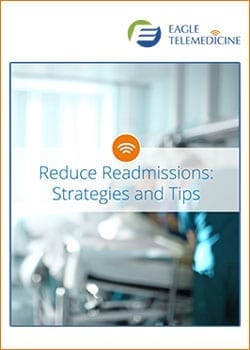When a great idea takes off, it’s surprising where it can take you.
Over our decade in business at Eagle Telemedicine, we’ve found many varied applications for our services, from ICU care in hospitals to oncology, infectious disease care and behavioral health. We’ve even provided backup support and respite care for clinicians working in hospitals that are affected by hurricanes like Florence and Dorian. A case study was published about the role we played at a North Carolina hospital during one of those events.
Recently, we’ve also answered a need for a Maternal Fetal Medicine (MFM) program via telemedicine at a large Alabama hospital. The 150-bed acute care facility is now able to offer services for women with high-risk pregnancies. It is the first hospital in its metropolitan area to offer those services onsite.
The program is also the first MFM program for Eagle. With the nationwide shortage of OB/GYN specialists, I am certain it won’t be our last.
Shortages of OB/GYNs at Critical Levels
It comes at a time of intense interest across the country in the role of telehealth in helping new and expectant mothers, especially those in rural areas who struggle to find qualified MFM specialists. (MFM specialists are OB/GYN physicians with an additional two to three years of education and training in treatment of high-risk pregnancies. They can be called in to help with issues such as multiple births, early labor or pregnancy-related high blood pressure.)
Shortages of OB/GYNs have reached critical levels, with half of U.S. counties lacking a single specialist available to treat pregnant women. By 2020, the American Congress of Obstetricians and Gynecologists predicts there will be 8,800 fewer women’s health specialists than needed.
The Alabama facility had struggled for years to find MFM providers to serve its community. To receive care, patients were transferred to hospitals 90 miles away. The Eagle Tele-MFM program solves that problem. We put together an outstanding team of MFM specialists to provide virtual support to the hospital. Within 90 days after implementation, the facility had reduced its patient transfer or bypass rate by 75 percent.
Maternal Fetal Medicines Delivers Strong Results Right Away
The program also has delivered these impressive results:
- 306 patient encounters in the first five months
- 100 percent patient satisfaction
- 95 percent participation from local obstetricians in the first 45 days
The program began with an onsite demo on how Eagle Telemedicine could help meet the hospital’s need for Tele-MFM services. Once the facility’s leadership agreed to partner with us, we consulted with the facility on several key areas to help make the program possible. This included working to modify health insurance carriers’ coverage of MFM telemedicine, arranging onsite and long-distance training of technicians to add perinatal scanning skills, providing advice on the design and building of new, expandable perinatal telemedicine space on the facility’s campus, and integrating the telemedicine program into the hospital’s electronic medical record (EMR) system.
These additional services are a good illustration of the added value we can bring to a project no matter what the specialty.
Bringing Innovation to Underserved Areas
Maternal fetal medicine emerged in the 1960s through new technology advances that enabled physicians to diagnose and treat fetal complications in utero. Today, MFM specialists can be found in major hospitals around the world, but that’s not the case in smaller hospitals that find themselves lacking in local resources to start their own MFM program.
Kudos to this Alabama facility for taking the initiative to change that situation through telemedicine. We look forward to sharing our pioneering experience there with other hospitals in areas that are underserved.
WHITEPAPER: Strategies and Tips to Reduce Readmission







